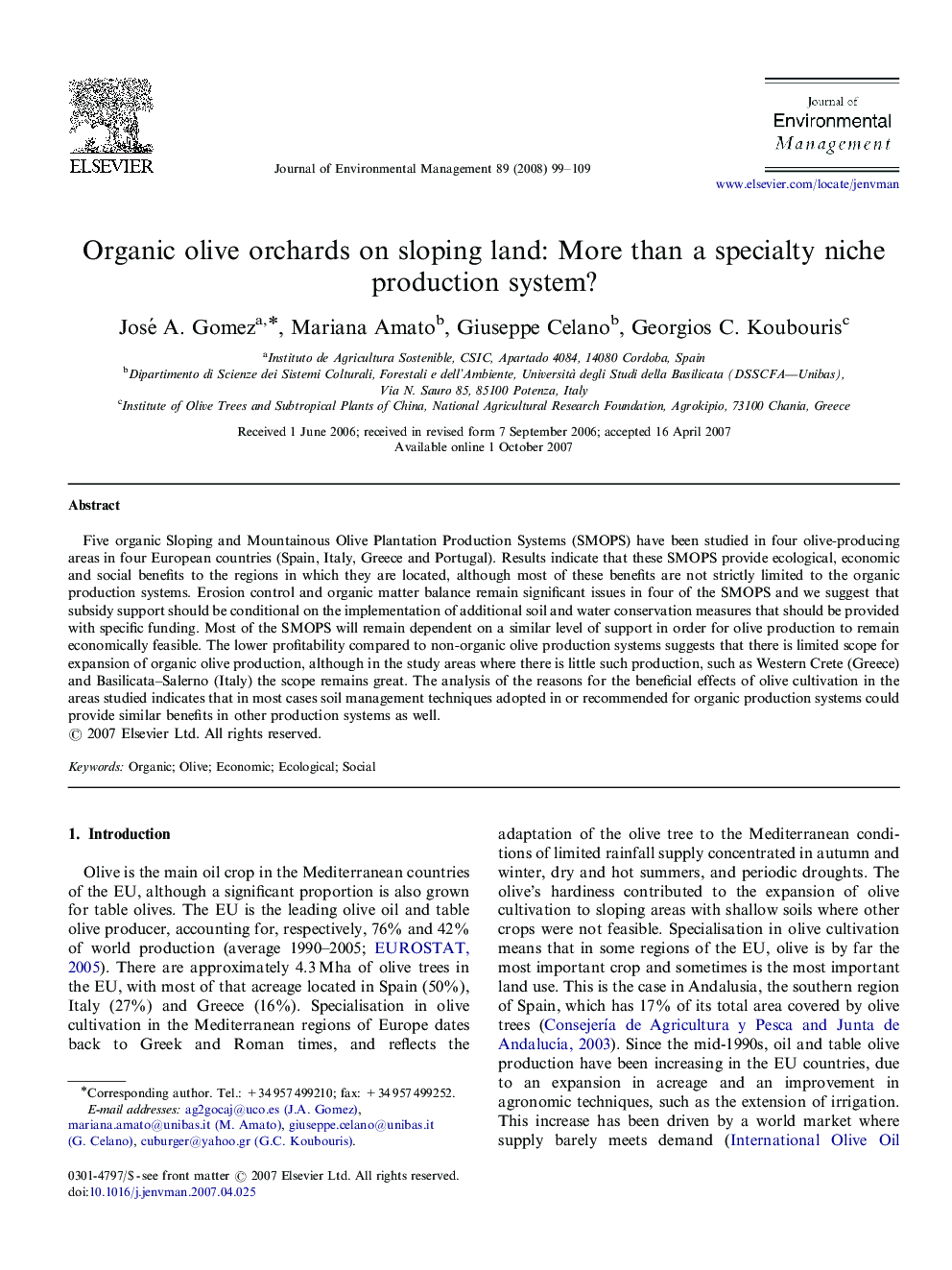| Article ID | Journal | Published Year | Pages | File Type |
|---|---|---|---|---|
| 1057618 | Journal of Environmental Management | 2008 | 11 Pages |
Five organic Sloping and Mountainous Olive Plantation Production Systems (SMOPS) have been studied in four olive-producing areas in four European countries (Spain, Italy, Greece and Portugal). Results indicate that these SMOPS provide ecological, economic and social benefits to the regions in which they are located, although most of these benefits are not strictly limited to the organic production systems. Erosion control and organic matter balance remain significant issues in four of the SMOPS and we suggest that subsidy support should be conditional on the implementation of additional soil and water conservation measures that should be provided with specific funding. Most of the SMOPS will remain dependent on a similar level of support in order for olive production to remain economically feasible. The lower profitability compared to non-organic olive production systems suggests that there is limited scope for expansion of organic olive production, although in the study areas where there is little such production, such as Western Crete (Greece) and Basilicata–Salerno (Italy) the scope remains great. The analysis of the reasons for the beneficial effects of olive cultivation in the areas studied indicates that in most cases soil management techniques adopted in or recommended for organic production systems could provide similar benefits in other production systems as well.
